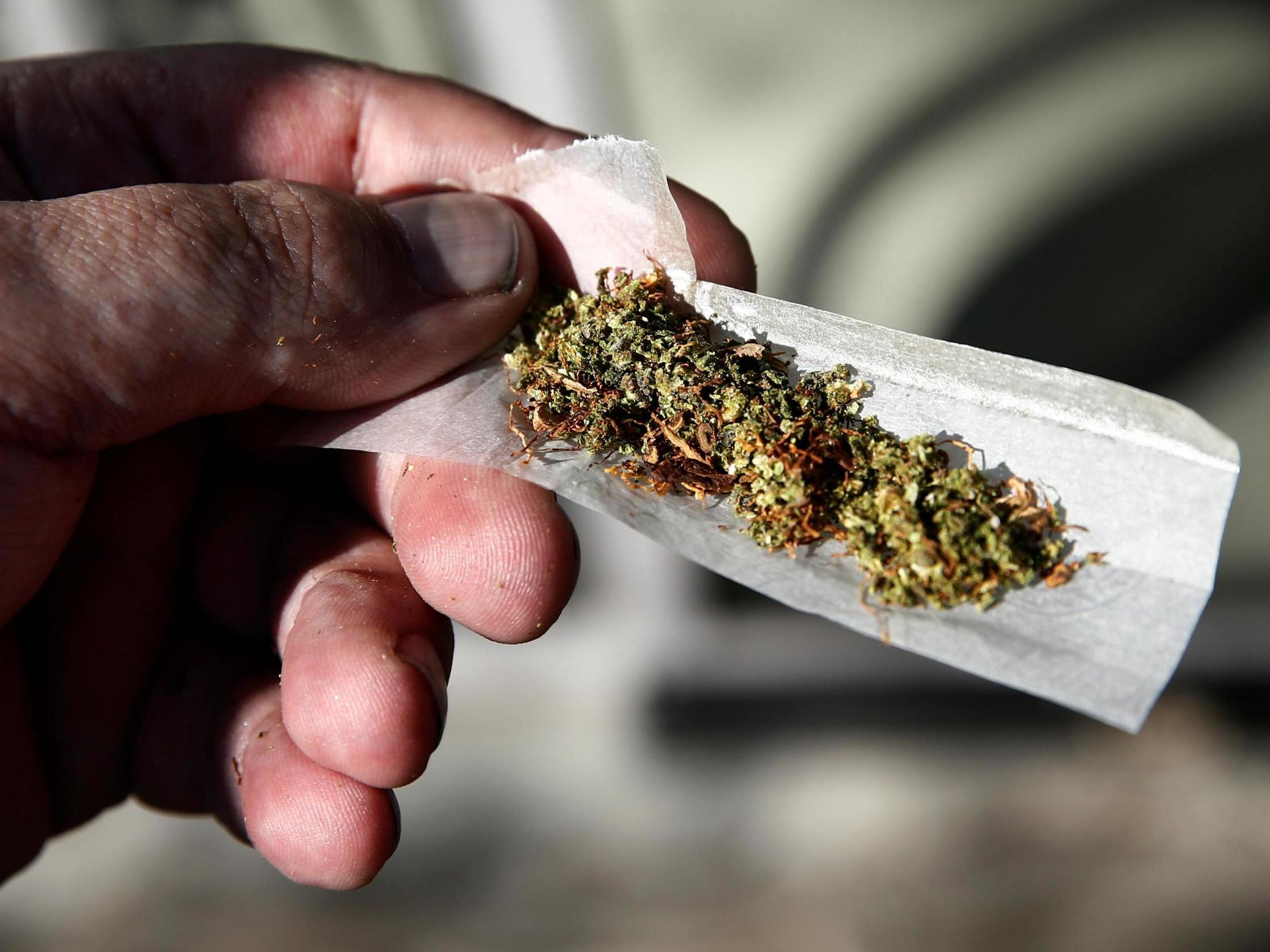Support for legalising cannabis growing among British public, survey finds
Poll shows policy-makers are 'significantly behind' tide of public opinion, says former Tory minister

Your support helps us to tell the story
From reproductive rights to climate change to Big Tech, The Independent is on the ground when the story is developing. Whether it's investigating the financials of Elon Musk's pro-Trump PAC or producing our latest documentary, 'The A Word', which shines a light on the American women fighting for reproductive rights, we know how important it is to parse out the facts from the messaging.
At such a critical moment in US history, we need reporters on the ground. Your donation allows us to keep sending journalists to speak to both sides of the story.
The Independent is trusted by Americans across the entire political spectrum. And unlike many other quality news outlets, we choose not to lock Americans out of our reporting and analysis with paywalls. We believe quality journalism should be available to everyone, paid for by those who can afford it.
Your support makes all the difference.Twice as many British adults now support the legalisation of cannabis than oppose it, according to a poll which reveals a “widening gulf” between public opinion and drug laws.
Forty-eight per cent of voters favour legalising recreational use of marijuana, up five points in the past year, with only 24 per cent objecting, found the YouGov survey.
Support for medicinal cannabis was even stronger, with 77 per cent of respondents saying it should be permitted. A similar proportion said they would consider using cannabis-based treatments if there was strong evidence it would benefit them.
The Conservative Drug Policy Reform Group (CDPRG), which commissioned the poll, said the findings indicated “clear and growing appetite” for a new approach to drug policy in the UK.
“This survey shows the government and politicians are significantly behind the public’s thinking,” said Rob Wilson, the group’s chief executive and a former Tory minister for civil society.
He added: “It illustrates the widening gulf between the stubborn, decades-old policies of blanket prohibition and the developing attitude of millions of voters willing to apply new approaches focused on improving harm reduction and healthcare outcomes.”
The findings come after the government legalised some cannabis-based medicines in November last year, giving specialist doctors the power to prescribe.
Despite this, virtually no NHS prescriptions have been issued to date, leaving expensive private prescriptions well beyond the reach of most families.
Just under a quarter of the poll’s 1,690 respondents thought patients who have been prescribed cannabis by their doctor should be allowed to grow their own plants, with 22 per cent saying anyone should be allowed to cultivate the drug.
Thirty-one per cent of those surveyed admitted to having tried cannabis.
Support for legalising cannabis was strongest amongst young people and those living in London, where 56 per cent backed the move. Fifty-two per cent of respondents nationwide aged between 18 and 49 favoured the legalisation of recreational marijuana.
Seventy-nine per cent of those polled said the government was struggling to cope with the UK’s drug problems, with seven out of 10 respondents believing the current policy of prohibition failed to reduce harm.
Fifty-three per cent felt drug use should be viewed as a health issue and should be addressed with harm reduction strategies rather than criminalisation, which more than three-quarters said was not an effective deterrent.
Half of respondents believed the legalisation and government-regulated sale of cannabis would make young and vulnerable people safer, compared to 23 per cent who said it would not.
Mr Wilson said: “Illegal drugs are doing terrible damage to families and communities throughout the country. Thousands of people are dying, many hundreds of thousands of young people are taking drugs which they neither understand nor know what they contain. At the same time violent criminal gangs are making massive financial gains while preying on the weak and vulnerable.
“The findings of this survey demonstrate the urgent need for policymakers and government to start to rethink policy as part of an open, fully informed and evidence-based debate on the future of drugs policy. “
The CDPRG was launched last month by Mr Wilson and Conservative MP Crispin Blunt, who has called for cannabis to be legalised within five years. The group was set up to push for a “clear and comprehensive review of drugs policy”.
Mike Barton, the former chief constable of Durham Police, said: “We simply cannot arrest our way out of drug problems. Many of us in law enforcement have long been calling for a public health approach to drugs.
“These [poll] figures show the British public agree criminalisation isn’t the solution to drug problems. A public health approach could reduce harms for users as well as freeing up police resources to tackle serious crime.”
Join our commenting forum
Join thought-provoking conversations, follow other Independent readers and see their replies
Comments